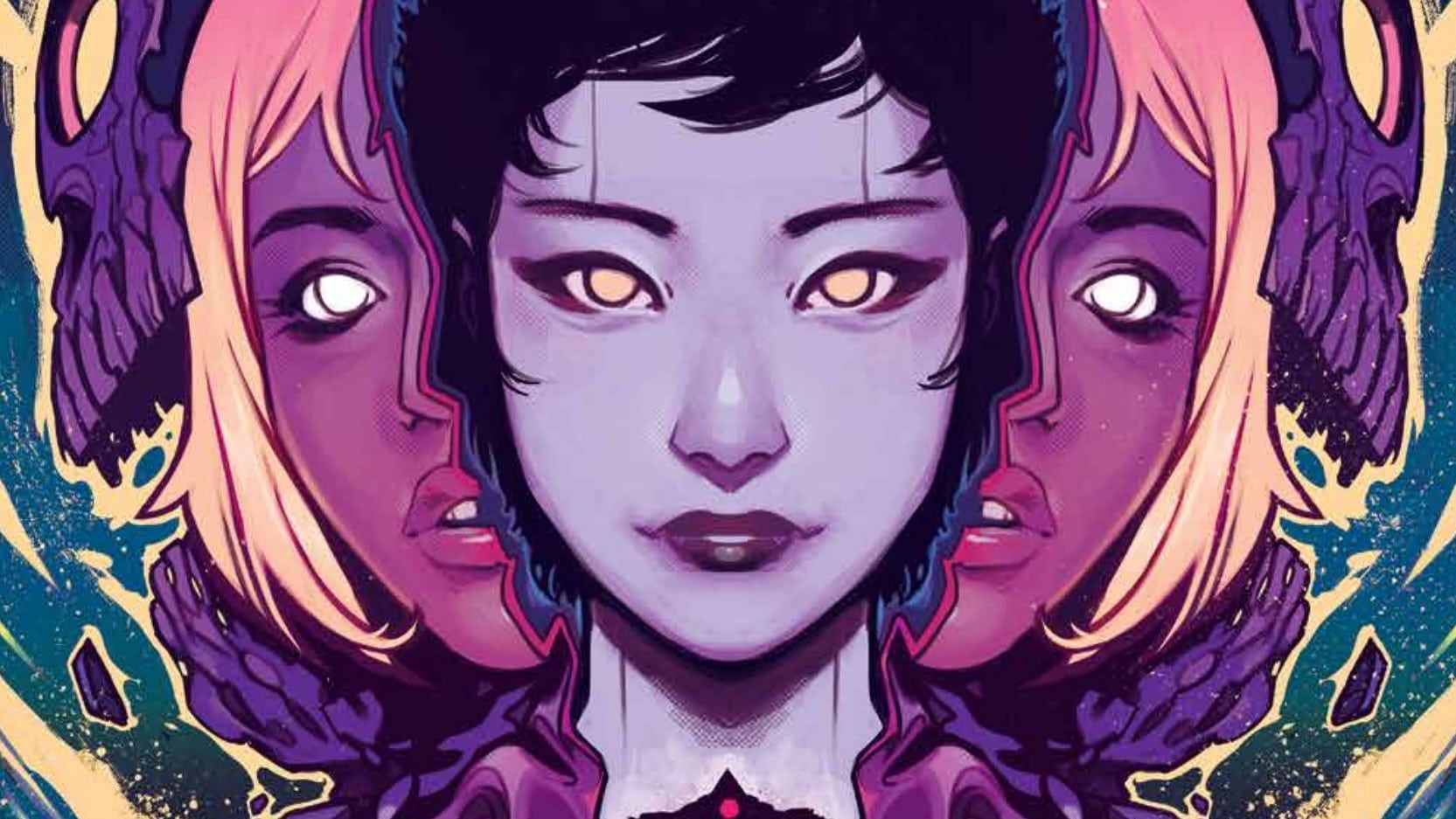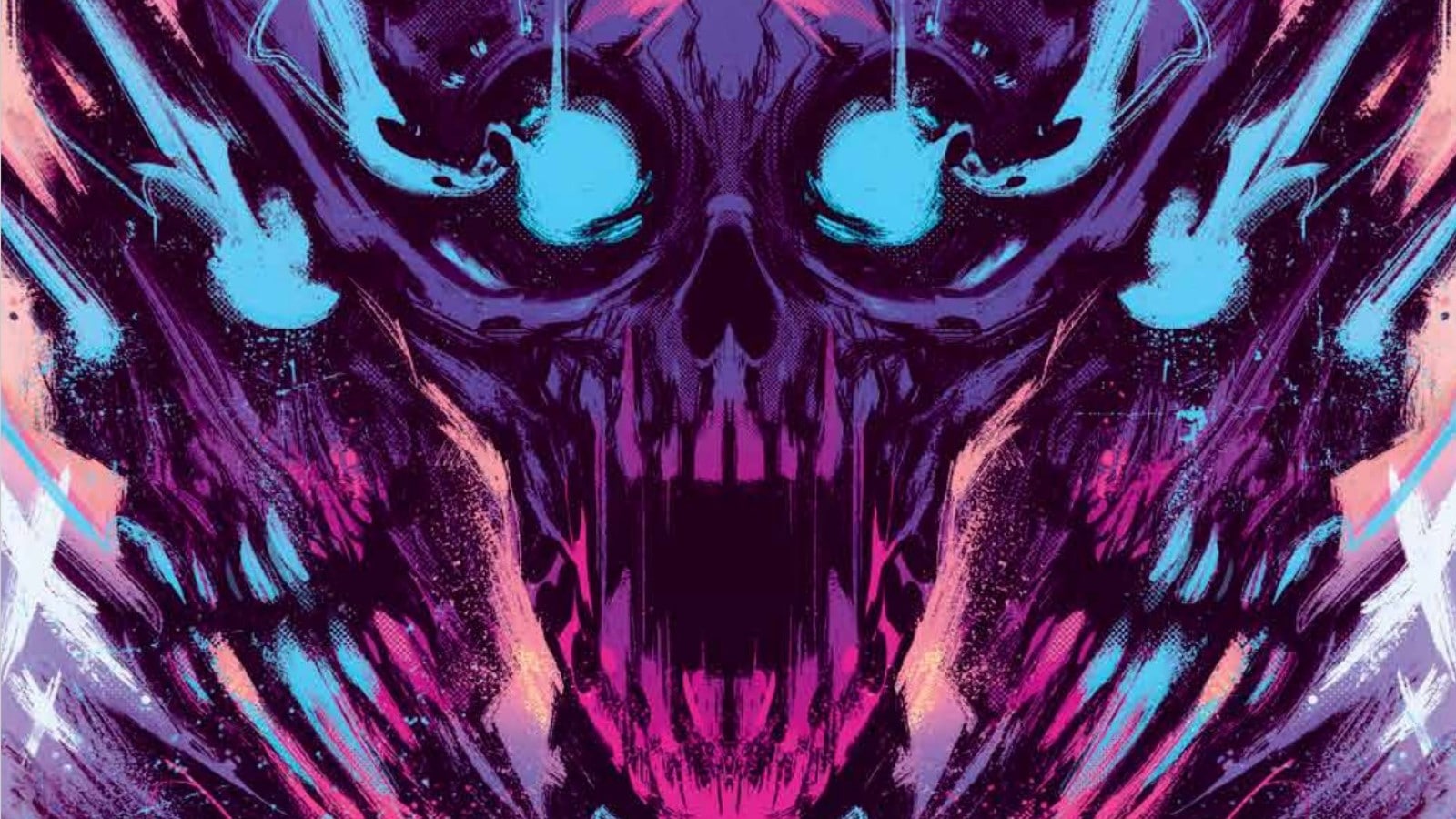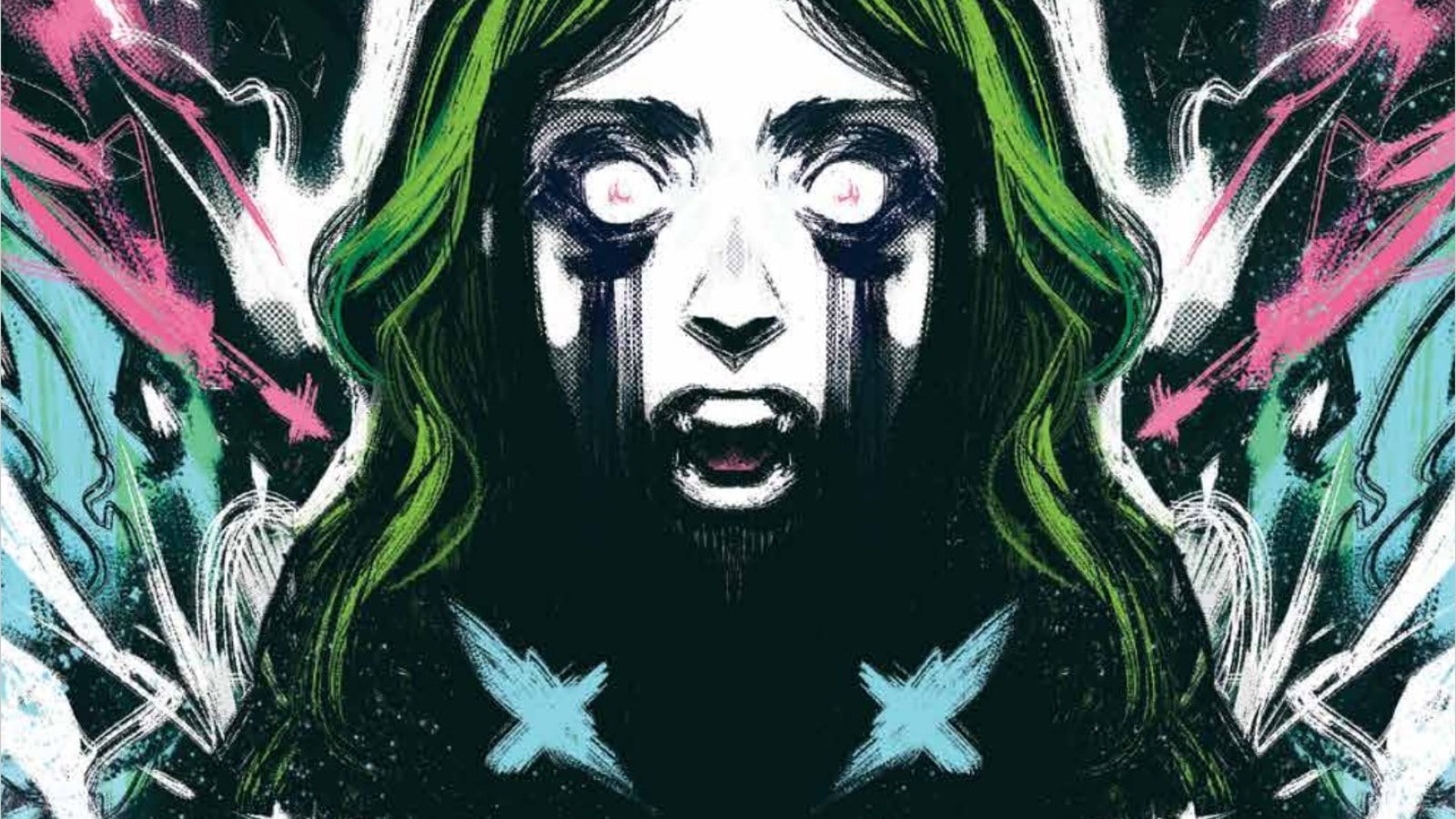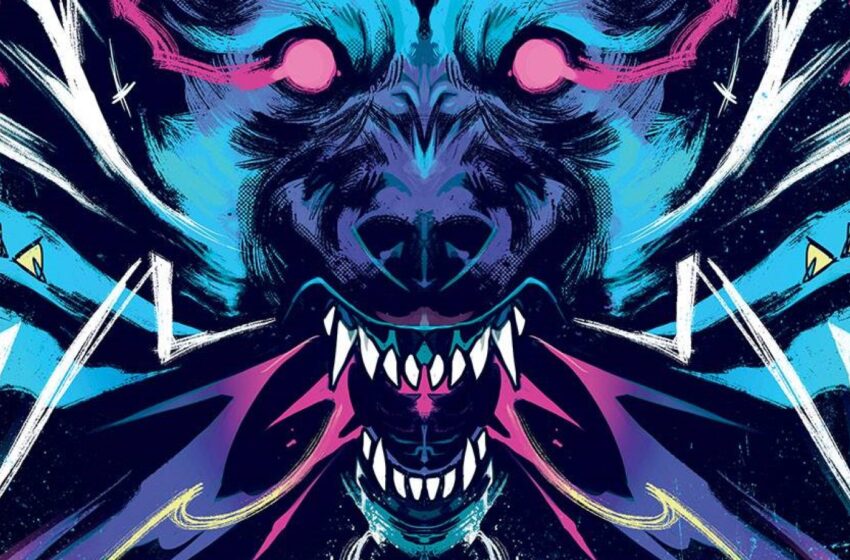A national trauma has been successfully weaponized, which is probably fine and very unlikely to end in tears or provoke an army of ghosts to flood from the Earth to seek revenge. But let’s keep an eye on it anyway in Home Sick Pilots #9, written by Dan Watters, drawn by Caspar Wijngaard, lettered by Aditya Bidikar and designed by Tom Muller for Image Comics.
Dan Grote: And now, Forrest Hollingsworth will attempt their longest yeah boy ever.
Forrest Hollingsworth: Dan, suffice to say that after I got nearly every detail about System Disrupt’s location, Meg’s involvement and the name Nuclear Bastard right in our previous column, I could be described as both “hooting” and “hollering.” The real thing at play is Watters and Wijngaard recognizing that a predictable story isn’t necessarily a bad one, of course, but goddamn do I feel good anyways.
Dan: Love that for you, bud.

As a TL;DR for the readers, Forrest mentioned previously that System Disrupt’s HQ was likely near the site of past American nuclear testing, and that such a place would be ripe with the angry ghosts of people who died as a result of the fallout. Via villain monologue at the end of this issue, Meg makes that assumed backstory text. The important thing to remember is that Forrest called this from three issues away.
It’s weird though, reading Meg talk about it, the way she keeps hitting on the word “American,” it’s almost like you can hear Watters’ British accent creeping through, leveling his criticisms of the U.S. through a teenager who definitely didn’t pay attention in history class. I mean he’s not wrong, it just feels like in-world, how does Meg know this? Is she secretly a good student? The History Channel didn’t exist yet, so that’s out. Did she learn all this through ghost osmosis? Ghost-mosis?
Ugh, I’m getting ahead of myself. My point is …
We Should Talk about Meg
Dan: So Meg is pretty much the best at ghost-meching now. In a short span of time — mostly off-panel (grumble grumble) — she’s learned how to use ghost-imbued objects to make the Nuclear Bastard run, jump and do cartwheels, and now she’s ready to take the fight to the Old James House.
The problem is, no one else is.
We talked a little bit last time about how the blood of her former bandmates has given Meg the appearance of one of Marvel’s symbiote characters. More and more, that appears to apply to her personality as well. The blood demands vengeance, sacrifice, power. It takes Meg a hot minute to realize she’s being pushed to madness, and by the time she comes to her senses, it’s too late. She’s killed two members of System Disrupt — including their leader, General RZOR — and summons the ghosts created by past nuclear testing to power her mech, the Nuclear Bastard. In a last act of sanity, she pushes Rip to rescue Buzz and Ami before she and her ghost gang kill them.
Forrest, we’ve staked a pro-Meg agenda from jump, but things are clearly getting dicey here. Who or what exactly are we rooting for? What’s your ideal outcome for these characters?

Forrest: Are you trying to back out on Meg Appreciation Day?
Dan: Um, I did not wake up at 5 a.m. and decorate my house in backwards baseball caps for nothing.
Forrest: If anything, she’s more punk now because all of those System Disrupt kids were posers and feds.
Dan: [Nods aggressively]
Forrest: But in all seriousness, I think things are getting bad, and exponentially, for both Ami and Meg because they haven’t actually grappled with the root of their trauma. For Ami, it’s the early mentioned but never seen death of her mother. For Meg, it’s the death of her bandmates. The James House and the Nuclear Bastard have respective holds over them because those underlying issues are unaddressed. They’re conduits for globalized pain. You know those graphics where the boss yells at the dad so he yells at the spouse so they yell at the kid who yells at the dog? It’s reductive, but we’re finding the cast very much in the midst of a similar, hyper-exaggerated cycle of trauma and abuse. It’s a neat, demanding and definitely depressing narrative emphasis that I’m very invested in. Watters never makes it seem preachy, as dire as the situation in this issue is.
Quite frankly, I think a lot of things are going to get worse until both Meg and Ami realize they need less punching and more talking (which makes for a more boring comic, but I digress). What I’m saying, Dan, is that I’m on the side of therapy breaking the cycle … and also of symbiotes because c’mon, it’s a good look.
Dan: This book is set in 1994. We’re one year out from Dr. Katz: Professional Therapist popularizing mental health care (for stand-up comedians, anyway). Someone’s gotta sit these two down and get them talking about their shit. Maybe monkeys are the answer!
Monkeys, Potatoes and Shakespeare
Dan: So it turns out, 100 monkeys with 100 sweet potatoes will … wash them in the river.
In explaining System Disrupt’s mission to Rip, member Trish tells him about the Hundredth Monkey Effect, born of a study in the 1950s in which scientists watched Japanese macaques teach each other to wash sweet potatoes to get the dirt off them until the behavior spread across their island. Trish then proceeds to tell Rip that that learned behavior somehow spread to monkeys on neighboring islands through some sort of shared-consciousness effect.
Rip’s response: “That … sounds like bullshit.”
And he’s right.
While the Hundredth Monkey Effect is a known theory, and the original 1950s island research is real, the idea that the monkeys’ learned behavior magically transferred to monkeys on neighboring islands is apocryphal, introduced in later papers in the 1970s and ’80s via second- and third-hand sourcing and eventually becoming a thing that got inserted into new-age books to make people who believe in angels and obsessed over The X-Files go “whoa.”

But it’s the perfect theory to use to explain why ghosts can make haunted houses and mech suits move in your made-up fiction comic. Forrest, as someone who’s proved their conspiracy-theory and weird-science bona fides on this site, what say you about the Hundredth Monkey Effect?
Forrest: I thought it was supposed to be something about monkeys washing William Shakespeare. Either way, I think the admittedly clumsy analogy gets at the narrative parallels that Watters is trying to establish. Meg isn’t responsible for the pain and trauma of thousands of Americans who suffered the effects of nuclear fallout, but her heightened sensitivity and malleability make her a tool for it nonetheless — a mapping of pain and experience that though different (as much as Ami’s and Meg’s are to each other, too) is recognizable in the global sense the scientifically dubious monkey story is meant to emphasize. Bridging the gap.
The idea that the world may soon be experiencing a kind of global ghost event is really cool, and harkens to the series’ roots in Sentai storytelling. It also sets up some very cool potential for Wijngaard, who delivers unambiguously with every issue — the helicopter crash played against Meg’s despondency, red, blood-like wash running down her face in this case.
Dan: So what you’re saying is, this is the mumbojumbo that eventually gets us to more sullen teens piloting more ghost mechs. I … I think I found the future that liberals want.
Cool Miscellany, Bro
- The existence of a radio ghost named Jolene implies a sequel to the Dolly Parton song that I definitely want to hear.
- How does one create a hose system for salt? That’s gotta hurt.
- I wonder what object General RZOR’s ghost will haunt.
- Was the warning in the first panel intended to be for the reader, or is it diegetic? Clarity in those cases is important.







